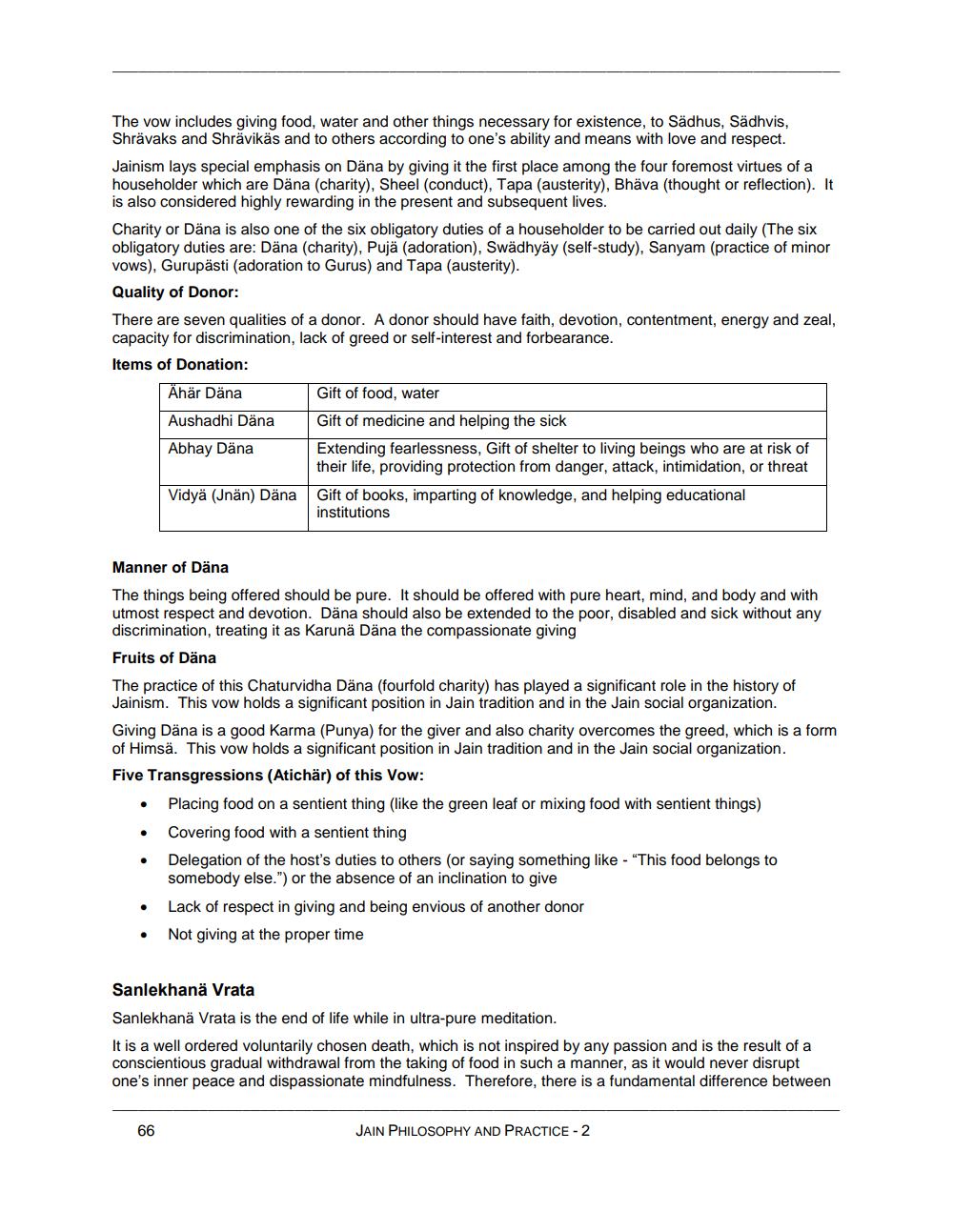________________
The vow includes giving food, water and other things necessary for existence, to Sädhus, Sädhvis, Shrävaks and Shrävikäs and to others according to one's ability and means with love and respect.
Jainism lays special emphasis on Däna by giving it the first place among the four foremost virtues of a householder which are Däna (charity), Sheel (conduct), Tapa (austerity), Bhäva (thought or reflection). It is also considered highly rewarding in the present and subsequent lives.
Charity or Däna is also one of the six obligatory duties of a householder to be carried out daily (The six obligatory duties are: Däna (charity), Pujä (adoration), Swädhyay (self-study), Sanyam (practice of minor vows), Gurupästi (adoration to Gurus) and Tapa (austerity).
Quality of Donor:
There are seven qualities of a donor. A donor should have faith, devotion, contentment, energy and zeal, capacity for discrimination, lack of greed or self-interest and forbearance.
Items of Donation:
Ähär Däna Aushadhi Däna Abhay Däna
Vidyä (Jnän) Däna
Manner of Däna
The things being offered should be pure. It should be offered with pure heart, mind, and body and with utmost respect and devotion. Däna should also be extended to the poor, disabled and sick without any discrimination, treating it as Karunä Däna the compassionate giving
Fruits of Däna
•
Gift of food, water
Gift of medicine and helping the sick
Extending fearlessness, Gift of shelter to living beings who are at risk of their life, providing protection from danger, attack, intimidation, or threat
The practice of this Chaturvidha Däna (fourfold charity) has played a significant role in the history of Jainism. This vow holds a significant position in Jain tradition and in the Jain social organization.
•
Gift of books, imparting of knowledge, and helping educational institutions
Giving Däna is a good Karma (Punya) for the giver and also charity overcomes the greed, which is a form of Himsä. This vow holds a significant position in Jain tradition and in the Jain social organization. Five Transgressions (Atichär) of this Vow:
Placing food on a sentient thing (like the green leaf or mixing food with sentient things) ⚫ Covering food with a sentient thing
Delegation of the host's duties to others (or saying something like - "This food belongs to somebody else.") or the absence of an inclination to give
Lack of respect in giving and being envious of another donor
Not giving at the proper time
66
Sanlekhanä Vrata
Sanlekhanä Vrata is the end of life while in ultra-pure meditation.
It is a well ordered voluntarily chosen death, which is not inspired by any passion and is the result of a conscientious gradual withdrawal from the taking of food in such a manner, as it would never disrupt one's inner peace and dispassionate mindfulness. Therefore, there is a fundamental difference between
JAIN PHILOSOPHY AND PRACTICE - 2




